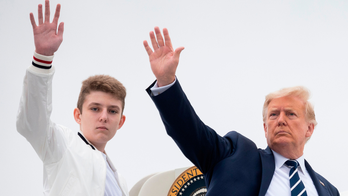The IRS spent $4.1 million in taxpayer money on a training conference in California that featured luxury rooms and gift giveaways, according to a watchdog report that only fuels the intense scrutiny of the embattled agency.
The report from the Treasury inspector general for tax administration -- the same watchdog that blew the whistle on the agency's targeting of conservative groups -- showed that the IRS held 225 employee conferences from 2010 through 2012, at a total cost of $49 million.
It drew particular attention to the 2010 conference in Anaheim, Calif., where 132 IRS officials received room upgrades. One official stayed five nights in a room that regularly goes for $3,500 a night, the IG report said, and another stayed four nights in a room that regularly goes for $1,499 a night.
The agency paid a flat daily fee of $135 per hotel room, the report said, but the upgrades were part of a package deal that added to the overall cost of the conference. Without the upgrades, the IRS could have negotiated a lower room rate, as required by agency procedures.
The inspector general's report was surfacing as the IRS came under fire again in connection with its targeting of conservative groups during the 2010 and 2012 elections. On Capitol Hill on Tuesday, Tea Party targets testified about the additional scrutiny they received at the hands of IRS agents.
The Anaheim conference was the most expensive, but others were costly, too.
In 2010, for instance, the agency held a conference in Philadelphia that cost $2.9 million, one in San Diego that cost $1.2 million, and one in Atlanta that also cost $1.2 million.
Acting IRS Commissioner Danny Werfel has called the conferences "an unfortunate vestige from a prior era." Werfel took over the agency about two weeks ago, after President Barack Obama forced the previous acting commissioner to resign.
For more than 18 months during the 2010 and 2012 election campaigns, IRS agents in a Cincinnati office singled out Tea Party and other conservative groups for additional scrutiny when they sought tax-exempt status, according to a previous IG report.
The report issued last month said Tea Party groups were asked inappropriate questions about their donors, their political affiliations and their positions on political issues. The additional scrutiny delayed applications for an average of nearly two years, making it difficult for many of the groups to raise money.
The Associated Press contributed to this report.




